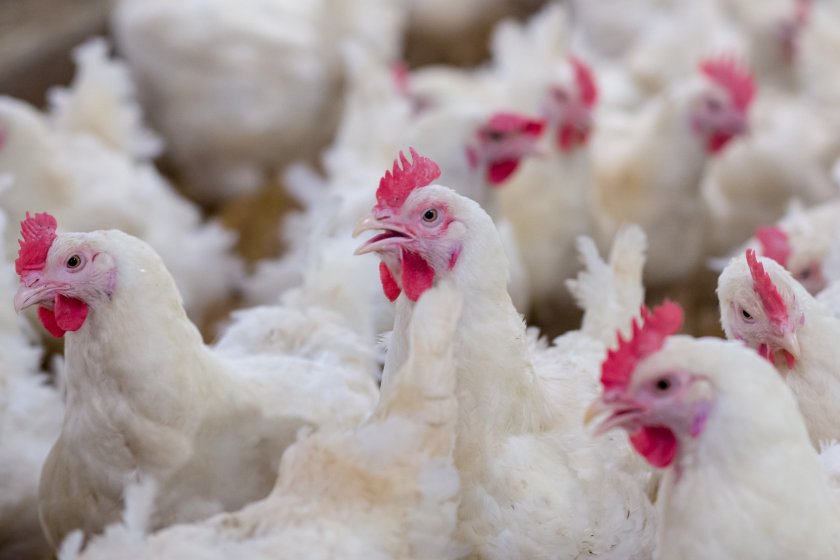
Researchers have called for a halt in granting any planning applications for new or expanding poultry and pig farms due to the risks they may have to human health.
Scientists from the University of Winchester and Griffith University, Australia said there were 'established concerns' about pigs and poultry acting as mixing vessels for new viruses that may result in 'sustained human-to-human transmission'.
The controversial study, published in Frontiers in Veterinary Science, looked at the risks posed to human health by intensive pig and poultry farms where the species are kept in close proximity to each other.
Based on their analysis, researchers said they were 'strongly discouraging' granting any planning applications for new or expanding intensive livestock farms, especially poultry and pig farms or a mix of both.
Instead, they recommended that efforts should concentrate on supporting arable agriculture - or a transition toward this - and on de-intensifying the remaining livestock farms.
The study's findings concerned mixed or close pig and poultry farms globally, but there was also a focus on the UK, according to the researchers.
Recent planning applications in the Borough Council of King’s Lynn and West Norfolk for large-scale mixed swine-poultry farms 'raise serious concerns'.
The scientists have urged policymakers to reconsider, and instead "prioritise measures that safeguard public health and well-being".
They warned that the the next zoonotic influenza virus could mutate and enable sustained human-to-human transmission, leading to a pandemic with high mortality rates.
Report author Jenny Mace, an animal welfare lecturer at the University of Winchester, said: “There are established concerns about pigs acting as mixing vessels for new viruses that may result in sustained human to human transmission.
"There are also established concerns about intensive farms being hot beds for disease. Despite these concerns, planning permissions are still being granted for new intensive farms or expansions of existing farms.”
Professor Andrew Knight, the study's co-author, said that to protect human health, intensive pig and poultry farms should not be permitted at large scale or in close proximity.
“There is exceptionally strong evidence for a link between low animal welfare levels and high disease transmission risks," he said.
"These environments are fertile breeding grounds for the emergence of new influenza pandemics and other dangerous diseases."
